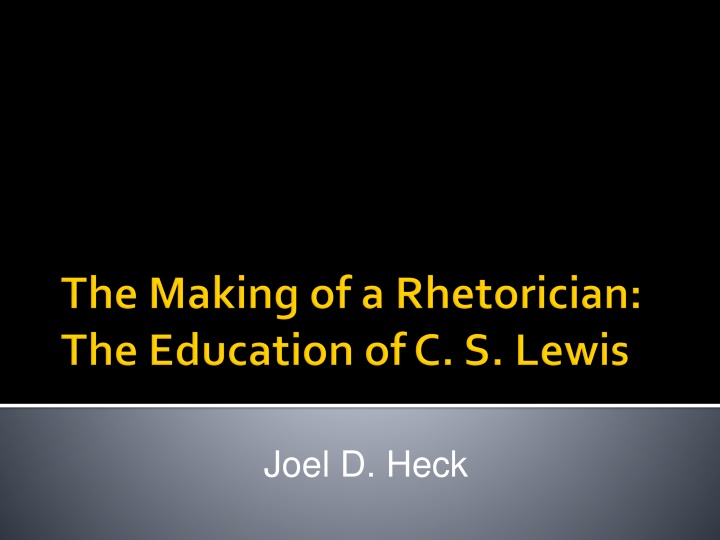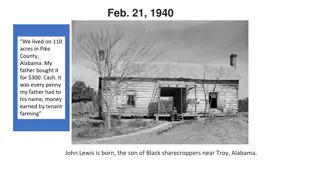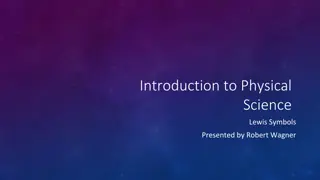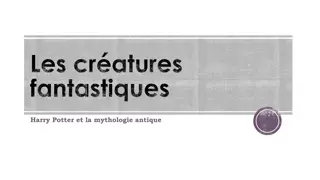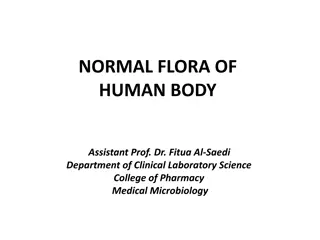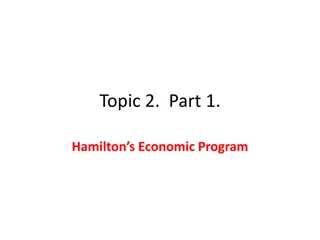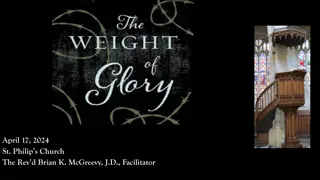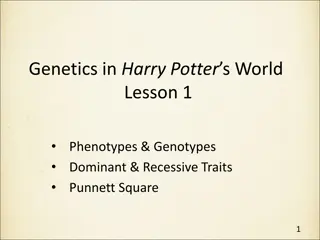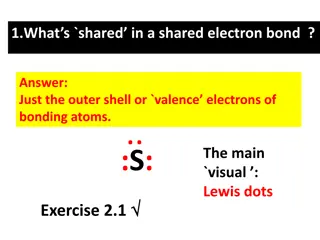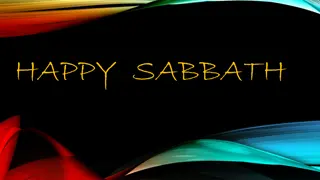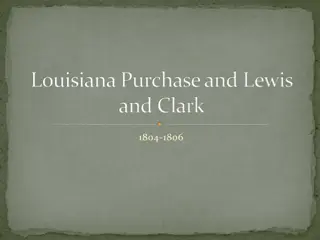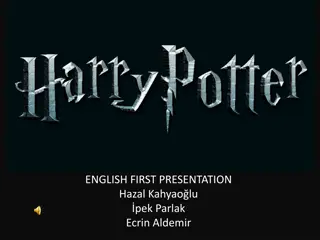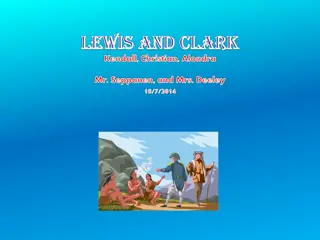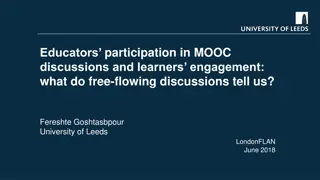Influential Educators: Joel D. Heck, Flora Hamilton Lewis, and Beatrix Potter
Explore the educational journeys of Joel D. Heck, Flora Hamilton Lewis, and Beatrix Potter, from their academic backgrounds to their deep thoughts on education and rhetoric. Discover the impact of influential figures like Harry Wakelyn Smith and the profound influence of MacDonald's book "Phantastes" on C.S. Lewis.
Download Presentation

Please find below an Image/Link to download the presentation.
The content on the website is provided AS IS for your information and personal use only. It may not be sold, licensed, or shared on other websites without obtaining consent from the author.If you encounter any issues during the download, it is possible that the publisher has removed the file from their server.
You are allowed to download the files provided on this website for personal or commercial use, subject to the condition that they are used lawfully. All files are the property of their respective owners.
The content on the website is provided AS IS for your information and personal use only. It may not be sold, licensed, or shared on other websites without obtaining consent from the author.
E N D
Presentation Transcript
He was educated At home W. T. Kirkpatrick University College He was an educator and a congenital rhetorician Oxford University Cambridge University He thought deeply about education He wrote about education Rhetoric fits into all of these categories
Flora Hamilton Lewis (1862-1908) earned a degree in math and logic from Queen s College, Belfast Albert James Lewis (1863-1929), a Belfast solicitor, was also a Queen s graduate (with a rhetorical bent)
Beatrix Potter Little Lea Death of his mother Wynyard School, 1908- 1910 Campbell College in the fall of 1910 Cherbourg House and Malvern College Campbell College, Belfast, 1910
Sept. 18, 1908 to July 1910 the putting on of the school clothes was the assumption of a prison uniform. James Adams McNeill and the poetry of Matthew Arnold (first semi-formal training in rhetoric)
Grammar Logic (Dialectic) Rhetoric
Malvern College and Harry Wakelyn Smith, a master of the Classics (Smewgy) Poetry, i.e. how it should be savored and mouthed in solitude. Smewgy taught me Grammar and Rhetoric and Kirk taught me Dialectic (SBJ, 141).
Sensitivity to nature Interested in art Also interested in northernness Especially taught Lewis humility
The discovery, in 1916, of MacDonald s book Phantastes (Imagination) Lewis later called MacDonald my master He once said that he never wrote a book in which MacDonald s influence did not appear
W. T. Kirkpatrick, The Great Knock His Tutor from Sept. 19, 1914 to April 25, 1917 Preparation for Oxford University If ever a man came near to being a purely logical entity, that man was Kirk. A man who thought not about you but about what you said.
Their meeting Kirkpatrick s style Lewis s later style The impact of such style What he could have done differently
Surprised by Joy, Chapter IX, The Great Knock You will often meet with characters in nature so extravagant that a discreet poet would not venture to set them upon the stage. LORD CHESTERFIELD The Date: Saturday, Sept. 19, 1914 Liverpool to London to Waterloo to Great Bookham in Surrey I came prepared to endure a perpetual lukewarm shower bath of sentimentality (133).
He was over six feet tall, very shabbily dressed (like a gardener, I thought), lean as a rake, and immensely muscular. His wrinkled face seemed to consist entirely of muscles, so far as it was visible; for he wore mustache and side whiskers with a clean-shaven chin like the Emperor Franz Joseph. I said I was surprised at the scenery of Surrey; it was much wilder than I had expected.
Stop! shouted Kirk with a suddenness that made me jump. What do you mean by wildness and what grounds had you for not expecting it? A few passes sufficed to show that I had no clear and distinct idea corresponding to the word wildness, and that, in so far as I had any idea at all, wildness was a singularly inept word. Do you not see, then, concluded the Great Knock, that your remark was meaningless?
Having analyzed my terms, Kirk was proceeding to deal with my proposition as a whole. On what had I based (but he pronounced it baized) my expectations about the Flora and Geology of Surrey? Was it maps, or photographs, or books? I could produce none. It had, heaven help me, never occurred to me that what I called my thoughts needed to be baized on anything. Kirk once more drew a conclusion without the slightest sign of emotion, but equally without the slightest concession to what I thought good manners: Do you not see, then, that you had no right to have any opinion whatever on the subject?
By this time our acquaintance had lasted about three and a half minutes; but the tone set by this first conversation was preserved without a single break during all the years I spent at Bookham. !!! The idea that human beings should exercise their vocal organs for any purpose except that of communicating or discovering truth was to him preposterous. The most casual remark was taken as a summons to disputation.
Grammar Logic (Dialectic) Rhetoric (Kirk had Lewis read the great Greek and Roman rhetoricians) For Lewis, Logic and Rhetoric merge to some extent.
Refutation (when we got so far) always followed the same lines. Had I read this? Had I studied that? Had I any statistical evidence? Had I any evidence in my own experience? And so to the almost inevitable conclusion, Do you not see then that you had no right, etc. The very next sentence: Some boys would not have liked it; to me it was red beef and strong beer.
After being knocked down sufficiently often I began to know a few guards and blows, and to put on intellectual muscle. In the end, unless I flatter myself, I became a not contemptible sparring partner. It was a great day when the man who had so long been engaged in exposing my vagueness at last cautioned me against the dangers of excessive subtlety.
These fiendish German atrocities But are not fiends a figment of the imagination? Very well, then; these brutal atrocities But none of the brutes does anything of the kind! Well, what am I to call them? Is it not plain that we must call them simply Human?
he announced that we would begin Homer on Monday. I explained that I had never read a word in any dialect but the Attic, assuming that when he knew this he would approach Homer through some preliminary lessons on the Epic language.
At nine oclock we sat down to work in the little upstairs study which soon became so familiar to me. It contained a sofa (on which we sat side by side when he was working with me), a table and chair (which I used when I was alone), a bookcase, a gas stove, and a framed photograph of Mr. Gladstone. We opened our books at Iliad, Book I. Without a word of introduction Knock read aloud the first twenty lines or so in the new pronunciation, which I had never heard before.
He then translated, with a few, a very few explanations, about a hundred lines. I had never seen a classical author taken in such large gulps before. When he had finished he handed me over Crusius Lexicon and, having told me to go through again as much as I could of what he had done, left the room. It seems an odd method of teaching, but it worked. At first I could travel only a very short way along the trail he had blazed, but every day I could travel further. Presently I could travel the whole way. Then I could go a line or two beyond his furthest North (141).
But Homer came first. Day after day and month after month we drove gloriously onward, tearing the whole Achilleid out of the Iliad and tossing the rest on one side, and then reading the Odyssey entire, till the music of the thing and the clear, bitter brightness that lives in almost every formula had become part of me (145).
No days, even at Bookham, were happier than those on which the afternoon post brought me a neat little parcel in dark gray paper. Milton, Spenser, Malory, The High History of the Holy Grail, the Laxdale Saga, Ronsard, Ch nier, Voltaire, Beowulf and Gawain and the Green Knight (both in translations), Apuleius, the Kalevala, Herrick, Walton, Sir John Mandeville, Sidney s Arcadia, and nearly all of Morris, came volume by volume into my hands (147f.).
Smewgy and Kirk were my two greatest teachers. Roughly, one might say (in medieval language) that Smewgy taught me Grammar and Rhetoric and Kirk taught me Dialectic. My debt to him is very great, my reverence to this day undiminished (148).
Honour Moderations Greek and Latin texts Greats Philosophy and Ancient History English Language and Literature
One subject Three years Tutorials Lectures Preliminary exams Final exams Viva voce
The Martlets, an undergraduate literary society where he sharpened his rhetorical and debating skills (1919ff.) The Inklings (1933-1949) The Socratic Club (1942-1954)
Quintilian Hugh Blair s Lectures on Rhetoric and Belles Lettres I. A. Richards, The Philosophy of Rhetoric
Rhetoric and Poetry definitely aim at doing something to an audience. And both do it by using language to control what already exists in our minds (Preface, 53). He is here indebted to Aristotle. I also am an Irishman and a congenital rhetorician (Collected Letters, II, 444). Always writing for the ear (BBC talks).
The differentia of Rhetoric is that it works to produce in our minds some practical resolve and it does this by calling the passions to the aid of reason (Preface, 53). in Rhetoric imagination is present for the sake of passion (and, therefore, in the long run, for the sake of action), while in poetry passion is present for the sake of imagination, and therefore, in the long run, for the sake of wisdom or spiritual health (Preface, 54). www.joelheck.com
